"You cannot put a fire out," reads a short poem by Emily Dickinson. It's also the name of a pivotal episode of Dickinson (now in its second season), Apple TV+'s delicious, postmodern imagining of the poet's life that stars Hailee Steinfeld in the titular role.
Whether Dickinson is referring to love, the burning drive to write, or something else entirely in that poem, the series leans into the fire within its lead character on all fronts, depicting her not only as the creative force she would come to be known as (after her death) but also as a queer woman who acts on her desires. But it's not just Emily and her friend/eventual sister-in-law Sue (Ella Hunt) who are part of the LGBTQ+ spectrum in the series. Creator Alena Smith baked Dickinson's queerness into its DNA like the rich and layered brandy-and-molasses-laden black cake that Emily concocts on the series (based on one of Dickinson's actual recipes).
"This is a show with a deeply female gaze. It is about a queer female artist. And it is created by lots and lots of women," Smith tells The Advocate.
Hailee Steinfeld chats with The Advocate
"Whenever I talk about gender ... I don't even really like using the words 'men' and 'women' because I don't like seeing gender that way. I like what the nonbinary folks are up to. That's a lot more accurate about describing each of us as just unique individuals," she says. "And Emily Dickinson and her poetry broke all kinds of boxes and definitions and boundaries."
For all of the strictures in place in Dickinson's lifetime, her poetry was, in its way, avant-garde. It seamlessly flows through and punctuates events in the series that blends aspects of the 19th century with modern music and ideals. It isn't only Dickinson's art that belies the image of the staid, spinster poet of Amherst, Mass., described by many English teachers. She had a deep capacity for love, evidenced by her letters to Sue, who eventually married Dickinson's brother, Austin.
"I feel so lucky that I am trusted in this role and to play that part of Emily's life because ... there are little-known facts about her life. Dickinson scholars will tell you she had a relationship with her best friend and then sister-in-law. To be able to play through that and not shy away from it ... I never saw [that] version of this story," Steinfeld tells The Advocate. "Through season 2, we get into more of what Emily and Sue are to each other, to themselves, [and] to other people."
Alena Smith chats with The Advocate
Smith and the writers pack Dickinson's brisk 30-minute episodes with themes of love, art, family, and the price of fame. They also address issues around women's agency -- sexual and otherwise -- change brought about by the Industrial Revolution and activism leading up to the Civil War. A single episode may grapple with mortality (Emily is in love with death) and may also be uproariously zany (Jane Krakowski plays Emily's mom, Mrs. Dickinson, after all).
The series covers so much ground, but it never loses sight of handing Dickinson a queer narrative she was denied in her lifetime. That's due in large part to the fact that the world Smith created for Emily is familiar to her.
"I am married to a man, but I am often in queer spaces," Smith explains. "Maybe that's just about being a theater person or a sort of experimental, radical person. I feel like it's all a spectrum. And you know, I've had queer experiences.
"I was drawing on that in the original pilot of Dickinson, where Emily and Sue are still pretty young and making out in an orchard with each other. But they can't get married and they don't have a legitimate social structure to step into," Smith says.
"The queer audience for Dickinson is our audience. ... It's so much fun to be getting to have this conversation and getting to sort of break open history and bring everybody into it who was there all the time."
"When I wrote the pilot of Dickinson and started making it ... I was just excited to find out that Emily was in love with her sister-in-law. I wanted to just show that in the show," she says. "But I didn't think about, really, how meaningful it actually is to be making a show for, you know, this younger audience that puts a queer love story at the center of the show."

Ella Hunt as Sue and Steinfeld as Emily
Indeed, the show announced its LGBTQ+ pedigree within 15 minutes of its first episode -- upon hearing that Sue is betrothed to her brother, Emily meets her in an orchard. There they profess their unmitigated love for one another before making out under an apple tree. Dickinson's second season sees Emily grappling with the idea of fame should she choose to publish her work, while Sue becomes the toast of Amherst, hosting salons for New England's finest (those scenes often brim with folks who read as queer). The season also has them finding their way back to each other.
"That's also an ongoing dialogue within the show. In season 1, we talked a lot about how Emily didn't have any definitions of her sexuality," Smith says.
"She's fluid, she's, she's in love with death. She's flirting with George, she's with Sue. One of the things that we've been working on in the writers' room for season three is actually a kind of pushing a little bit more on her to identify to define her identity. But that's, that's jumping ahead..."
Jane Krakowski chats with The Advocate
Steinfeld (who faced fame at a young age when she starred in True Grit) is honored to tell this piece of Dickinson's story. She shares what she believes is the connective tissue between Emily and Sue.
"They see each other for exactly who they are. Emily spends her whole life being told she's one thing, being told she supposed to be another, or should be another, or should be anything and everything but what she is from people in her own family and her own household," Steinfeld says.
"They have this deep love and understanding for who they are at heart. ... They are who they're supposed to be when they're together," she adds.
"I just hope that this is a relationship that people, especially in the LGBTQ+ community, feel that we do it justice because it's a beautiful and complicated, amazing relationship that deserves to have a light shone on it."
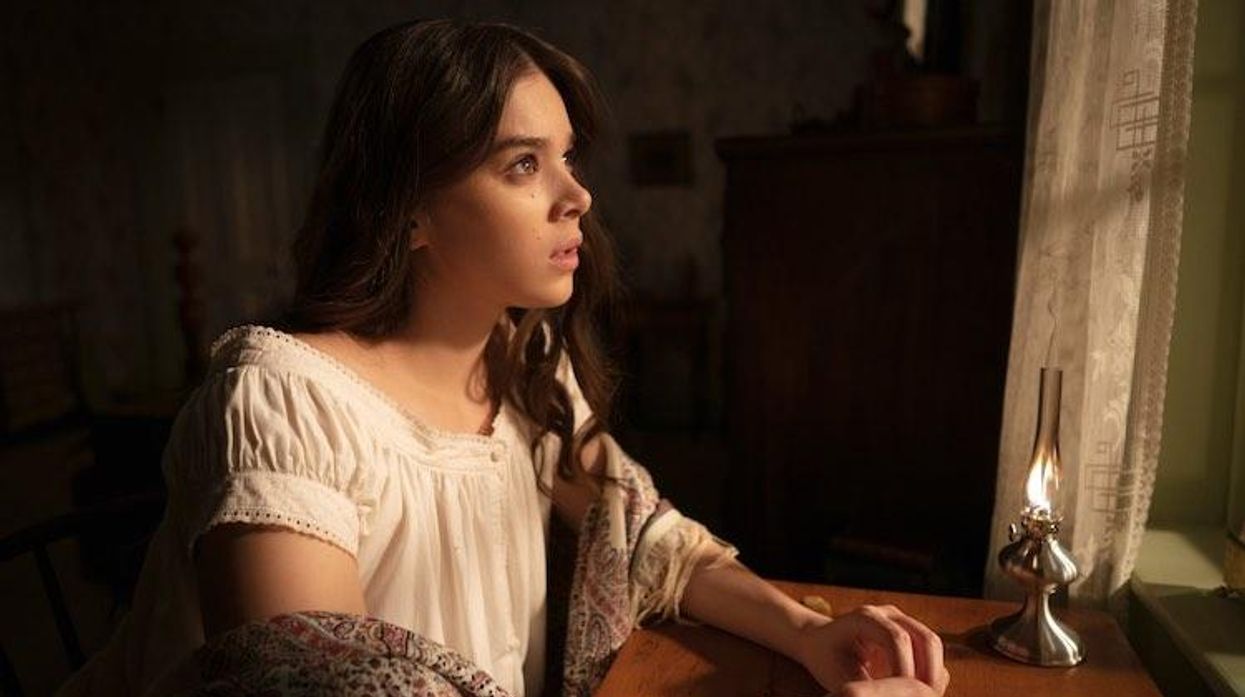

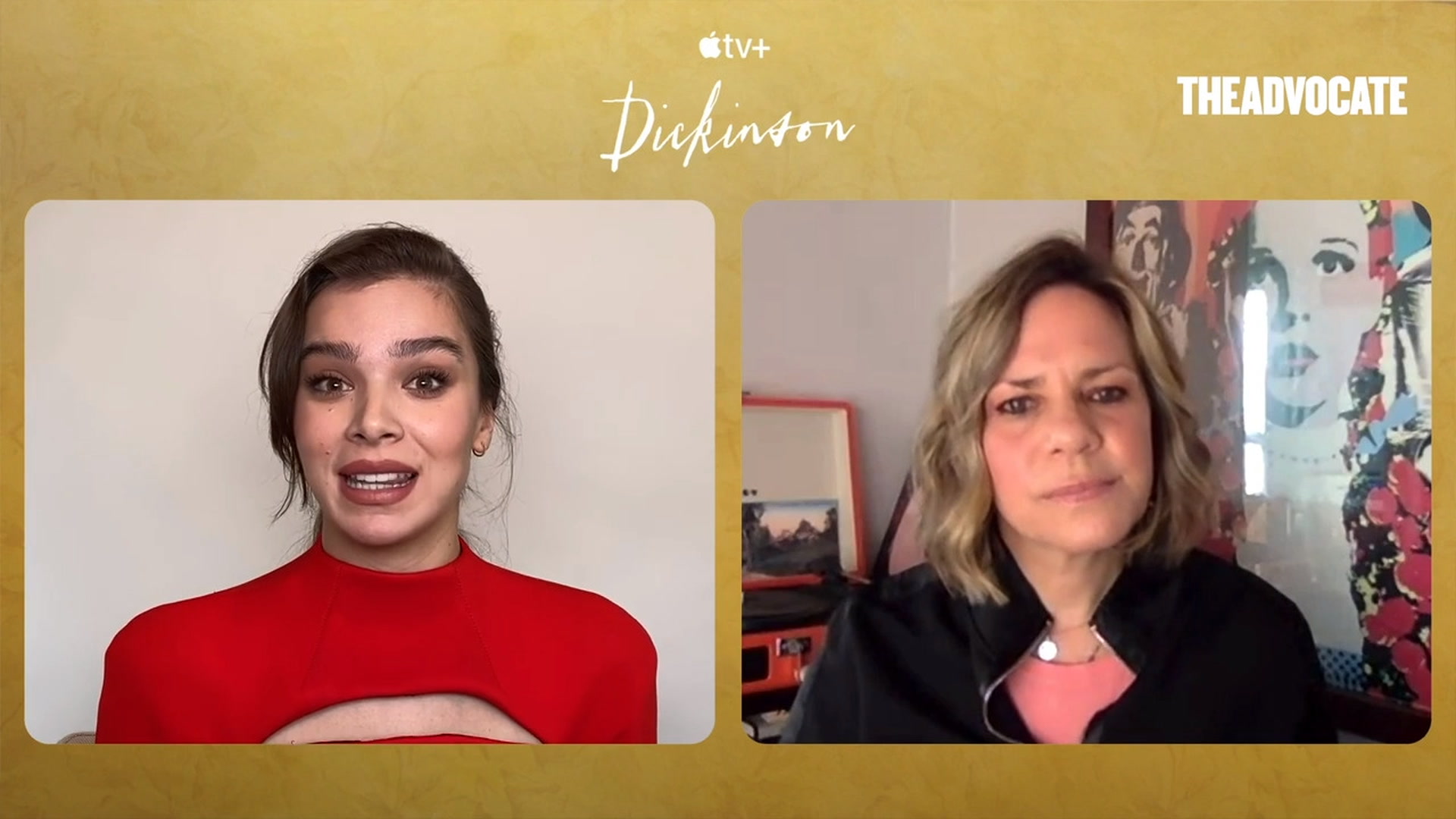
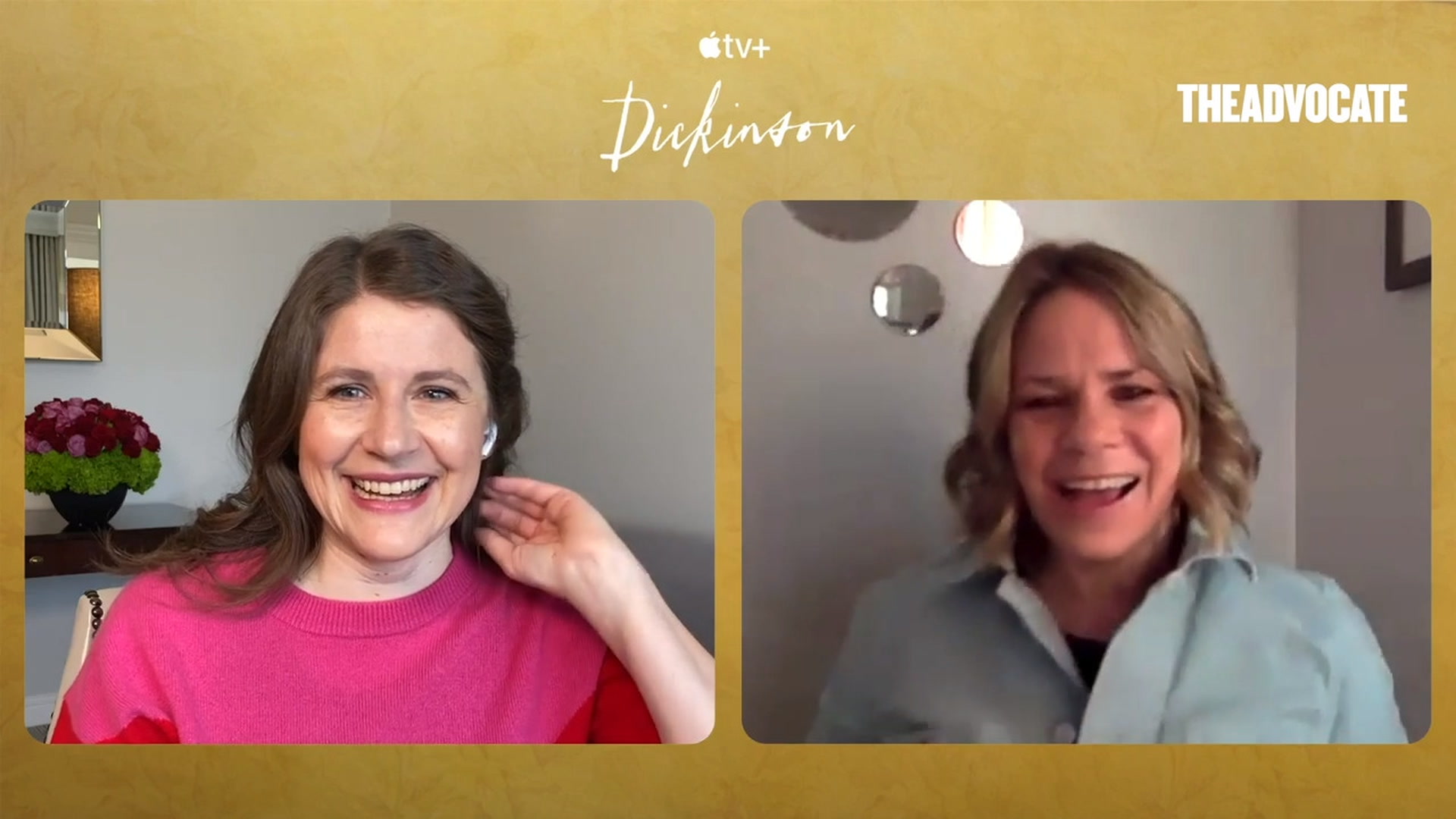
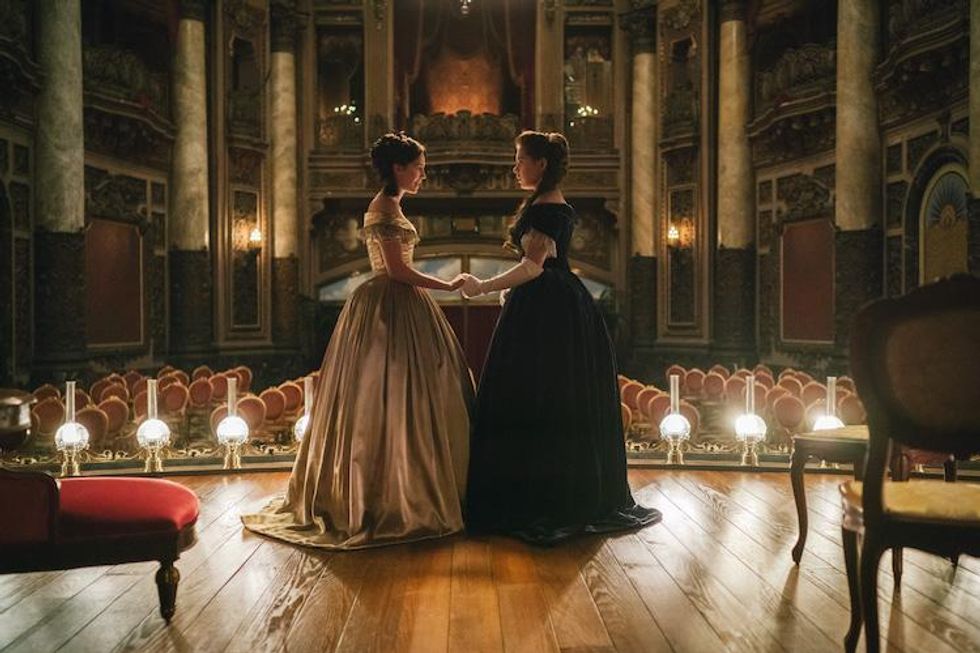
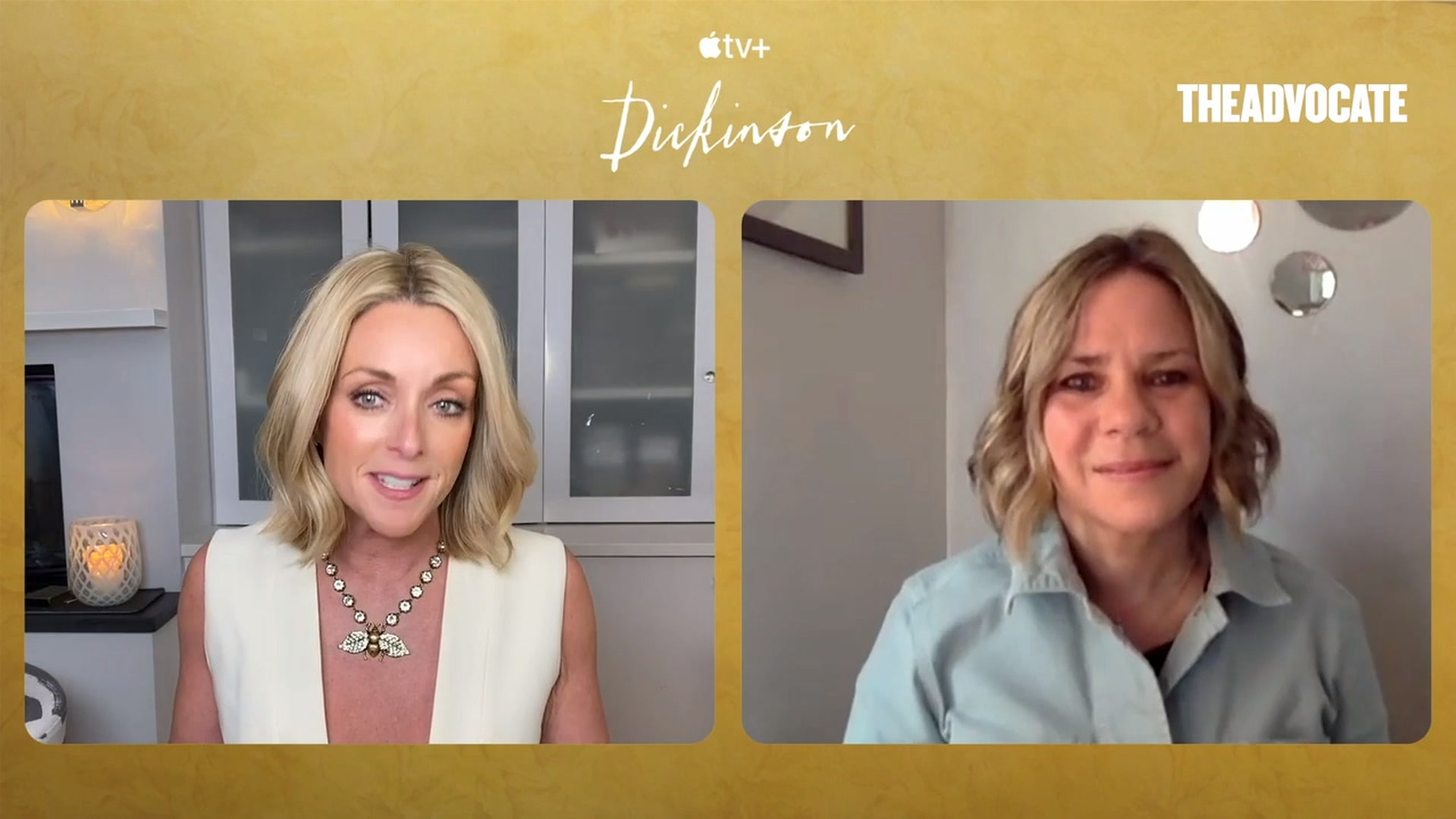



































































Charlie Kirk DID say stoning gay people was the 'perfect law' — and these other heinous quotes